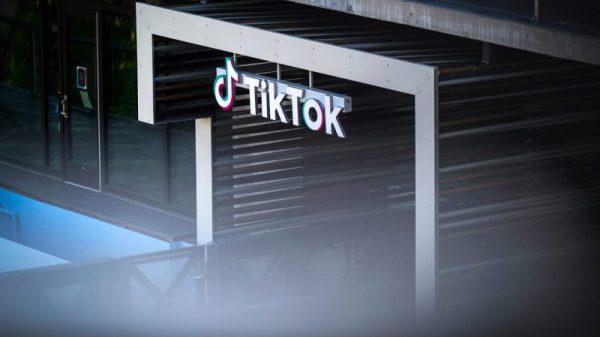Super Tuesday is a lot — even for those of us whose job it is to cover this stuff for a living.
While we get to devote all our attention on an election day to early states like Iowa, New Hampshire and South Carolina, having 15 states vote on the same day means some key developments can get lost in the shuffle.
We focused on some of the biggest storylines in our takeaways piece. Now that the dust has settled a little more, let’s focus on some other ones — further down the ballot, but also significant — that you might have missed, but shouldn’t.
As the Republican Party continues to shape its identity in the Trump era, the events in Texas shouldn’t escape notice.
Tuesday featured a very successful purge of moderate and insufficiently MAGA Republicans that could reverberate well beyond the state’s borders.
The basics: Both Texas Gov. Greg Abbott (R) and Attorney General Ken Paxton (R) targeted a number of incumbent Republicans who had run afoul of them — Abbott for opposing his school voucher plan, and Paxton for supporting his impeachment and watering down his authority.
Here’s how those panned out, as broken down by the Texas Tribune:
Of 10 state House GOP incumbents Abbott targeted, only two won renomination on Tuesday. Five lost, and three others were pushed into runoffs.Paxton was less successful in the state legislature; of the 35 House GOP incumbents he targeted, most won. But seven lost, and eight others were pushed into runoffs — including, most notably, state House Speaker Dade Phelan (R), who led the failed impeachment charge. (There is some overlap between the lists; for instance, four incumbents who lost were targeted by both.)Paxton also successfully targeted all three Republican judges on the state Court of Criminal Appeals who were up for reelection — two of whom lost by landslide margins. The trio had voted in an 8-1 majority to strip him of power to prosecute voter fraud without the approval of local prosecutors.
Tally it all up and the scope of the setbacks for intraparty foes of Abbott and Paxton was striking; the governor and the indicted attorney general both sought revenge, and both got a significant measure of it, either defeating or forcing into runoffs more than 1 out of every 5 state House Republicans.
It was bold for Texas Republicans to impeach an attorney general of their own party and for a panel of nine Republican judges to vote so overwhelmingly to check Paxton’s powers. You can bet that Tuesday’s events reduce the likelihood that they’ll do such things in the future.
In fact, it might be one of the most significant and impactful efforts to police and punish your own in recent political history. And it’s unlikely it’s just Texas Republicans who will have noticed.
As The Post’s Reis Thebault reported Thursday, voters in San Francisco continued to pull the city away from the far left on homelessness, drugs and crime — even as the city has become the right’s favorite punchline for alleged liberalism run amok.
Voters strongly supported rather conservative policies of requiring drug screening for welfare recipients (63 percent to 37 percent) and giving police more surveillance and pursuit powers and less oversight (60-40). They also voted to waive a tax for developers who convert office buildings into housing (68-32). On these proposals, Mayor London Breed (D) failed to earn support from the liberal board of supervisors before pursuing the ballot measures.
Also instructive was a measure to support bringing algebra back into middle schools, which passed 84-16. District officials had pulled the subject a decade ago in hopes of promoting equity. The school district had already signaled it would restore the subject, given that the experiment is generally acknowledged to be a failure.
And a slate of more moderate candidates appeared set to take over the local Democratic County Central Committee, just four years after liberals won all but two seats there.
The votes all follow on the successful 2022 recall of progressive former district attorney Chesa Boudin. At the time, Boudin’s recall was looked upon as an early indicator of a potential backlash even in blue areas against the left’s alleged soft-on-crime policies.
And while San Francisco was never quite as liberal as a lot of people might think, Tuesday showed that the course correction has continued.
Despite the Boudin example and an increasing focus on supposedly soft-on-crime policies, progressive district attorneys and candidates did well in some key races on Super Tuesday.
In Travis County, Tex. (i.e. Austin), District Attorney José Garza won his primary, 67-33, turning aside a concerted and well-funded effort to unseat him that featured apocalyptic and overwrought claims about crime. Elon Musk even encouraged Tesla employees to vote Garza out.
The more-progressive candidate also won in a landslide in Harris County (i.e. Houston), where challenger Sean Teare defeated incumbent District Attorney Kim Ogg by a 75-25 margin. Ogg has clashed with local Democratic officials about their more liberal policies.
(For more on these two races, see Daniel Nichanian’s recap at Bolts.)
The results were less encouraging for embattled progressive Los Angeles County District Attorney George Gascón. He is currently taking around 23 percent as of Friday in a very crowded field, which is far from a resounding performance. But he could well survive, as he appears headed for a runoff with a former Republican, Nathan Hochman. Hochman was that party’s 2022 nominee for California attorney general and took just 33 percent in Los Angeles County.
The verdict is still out on which direction the wind is blowing on the political left on such issues. For example, in addition to the Boudin example, Rep. Sheila Jackson Lee (D-Tex.) in December lost the Houston mayor’s race to a tough-on-crime Democrat. And San Francisco giving police more power is instructive. All of these races have different dynamics.
But thus far the effort to defeat progressives in district attorney’s races by linking their approaches to crime and George Soros — whose name featured in each of these contests — hasn’t exactly borne a lot of fruit.


































